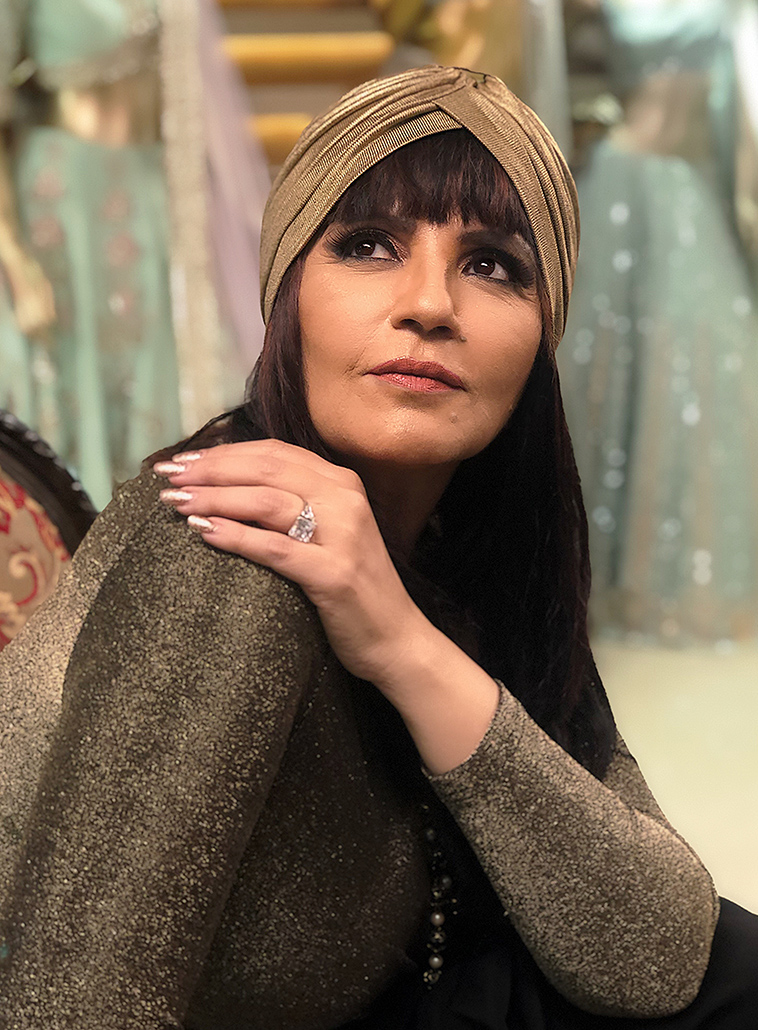Costume designing in Indian cinema has always been a larger-than-life affair, and no one knows it better than Neeta Lulla. With over 300 films to her credit, four National Awards, and an almost three-decade-long career, Neeta Lulla’s cap is a feather-filled one. She’s a stalwart in the realm of costume design, consistently showcasing her prowess through acclaimed works such as Devdas, Jodha Akbar, Lamhe, and many others. As we caught up with the ‘Czarina of Indian Fashion,’ she reflects on her journey and shares insights into the future of the fashion industry.
1. How has costume design evolved since the time you started out?
Neeta Lulla: Back when I started in the mid-80s and early 90s, the concept of costume design for a film differed from what we have today. When we used to work on particular films or for a particular artist, we were given a brief about the scene or movie in general, and you did your homework and got the designs ready and approved. But today, you are not designing for a particular scene or movie; you are creating a design that will go beyond the screen and have a social and cultural impact. Along with this, you also need to take into consideration an actor’s comfort level and personal preferences. There are fittings, trials, and screen tests done for the costumes, especially just to see how they come together in a scene and are detailed to perfection. The costume design has drastically evolved since the time I started out, and honestly, it’s a win-win for those of us who are just passionate about creating the most perfect pieces.
2. A lot of research goes into designing for period dramas. Can you take us through the creative process when designing for these films?
Neeta Lulla: Period dramas have become very important,especially in a time when there’s so much information at our disposal. It is very important to be mindful of all these details and represent them as accurately as one can. While designing for period dramas, first and foremost, I always undertake very rigorous research, studying the era, learning about the fabrics and designs that help create the structure for the garments, and having extensive discussions with the people involved in the project to align their views with the designs and how they can benefit from the storytelling. Then, once all the research is in place and the designs are locked in, I make sure to always be mindful to make these period pieces as comfortable as I can without compromising on accuracy. For instance, with heavy lehengas, dress pieces, and headgear, it can sometimes be very uncomfortable for the artist to wear them for such long durations, so I try to make the materials breathable and easy to wear without missing out on any detail or necessity.
3. You’ve got some iconic outfits in your career; do you ever sense the pressure of maintaining your legacy as the industry progresses?
Neeta Lulla: Yes and no. After having worked in the industry for over three decades now,I have carved a niche for myself, and my hard work is a testament to my love for fashion, which nobody can take from me. Having said that, I also make sure to never take this for granted. I have constantly challenged myself to broaden my horizons and learn something new every day in this ever-evolving world of fashion and garments. With new trends setting in and younger talent emerging, I don’t feel a sense of threat or competition but rather it keeps me on my toes and fuelled with motivation to create something unforgettable.
4. How eco-friendly is costume design currently, and what steps must one take to support sustainability?
Neeta Lulla: Costume design has now become incredibly aware of its impact on the environment in the long run. Earlier, the industry was different, with limited resources and awareness and fewer demands for outfits and costumes. Today, if you see, the industry has expanded into different horizons and can be seen present on a day-to-day basis. From airport looks and PR events to parties and premieres, everything requires a perfect outfit. This increased need has led to a sense of awareness about creating sustainable wear with less waste, pollution, and organic materials. One of the most important things we can do when supporting sustainability is to never shy away from repeating our outfits. It’s not a faux pas but rather remarkable, and you can always repurpose the same outfit and wear it for different occasions.
5. Do you feel that the line between street fashion and cinema has significantly blurred?
Neeta Lulla: Yes,I think so. As they say, art imitates life. I believe that fashion has always been influenced by cinema, and cinema with fashion. With the popularity of social media and increasing trends, cinema has a significant influence on fashion, and street fashion in particular. Audiences now want to dress up like their favourite celebrities and favourite characters, and sometimes, co-incidentally, what these celebrities are wearing can be easily replicated or found near you. Similarly, cinema and stories based in local towns and cities find their inspiration in what the locals or people they know or spot on the street are wearing—it’s unique and so different from how a designer would design it or even style it. The line is not just blurring but slowly merging into one.
6. With the rise of OTT channels and the success of larger-than-life films, where do you envision the future of costume design?
Neeta Lulla: I think with the rise of OTT channels and larger-than-life films, the future of costume design is going to evolve even further. It will open up more opportunities for a need for various stylists who can create a niche in the culture of today and have knowledge about the fashion industry. Innovation will be a progressive phenomenon in the ever-evolving world of this medium.
7. Lastly, what’s your personal style quotient?
Neeta Lulla: My style quotient is power dressing; from workwear to evening wear, I prefer classic neutral colours, coordinating different fusion ensembles teamed with shoes, boots, and belts, or statement neck pieces that are bold to accessorise my look.






